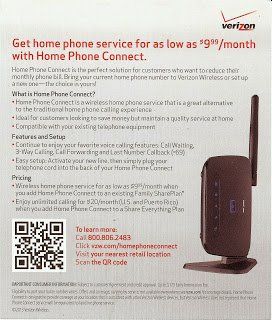News
What's New
How to Use Your 401(k) Plan to Prevent Foreclosure
How to Use Your 401(k) Plan to Prevent Foreclosure
If you are facing a home foreclosure, borrowing money from your 401(k) plan is one resource you can tap. Though there might be certain restrictions, a 401(k) plan might allow you to take out a hardship loan against your balance. Here's what to consider to determine if this is the right decision for you.
Instructions
Tips & Warnings
Control Spiders
Courtesy of Pest Exterminator
More than any pesticide or other pest control method, the best way to prevent spiders is to keep the home clean and free of food sources. Spiders are solitary hunters that prefer darkness and prey on other pests. They often take residence in corners or crevices where they are both safe from human danger and more likely to catch unsuspecting pests as they make their way into or around the home. For prevention, begin by cleaning cluttered areas of the home, especially the garage, attic, closets and bathrooms. Spiders prefer areas where it's cool and dark, so make sure to get areas underneath and behind furniture to prevent spiders from making themselves at home. A vacuum also works well to clean underneath furniture, behind appliances and in inconspicuous areas where spiders lurk. If you see spider webs in the corner of closets, bedroom walls or door frames, swat the web with a newspaper. Even if the spider isn't present on the web, it's an indicator that they will return or leave it behind for another spider to take up residence.
Spiders are repelled by citrus scents such as lemon, orange and lime, so any time you clean surfaces with a scented cleaner, use one with a citrus odor to act as double duty as a spider repellent. Spray along baseboards, doorways, in bathrooms and kitchen surfaces where spiders heavily frequent. Of course, there are common pesticides found in stores that work just as well in killing spiders at home. If exposure to pets and children are a concern, consider using pesticides made of natural ingredients that are non-toxic. Some of the most effective pesticides are those that also kill moths, mosquitoes, and flies. This helps eliminate the source of food for spiders, encouraging them to move elsewhere.
Outdoor Control
Outside, there are many do-it-yourself techniques that can get rid of spiders. One of the best ways to get rid of spiders is to eliminate their food source. This means killing off other pests such as mosquitoes, flies, moths and similar bugs. Pesticides can be applied to the lawn and garden for potential pests that spiders feed on.
Keep outdoor lights turned off to help limit other pests and the food source for spiders. Moths in particular are attracted to porch lights, which is why spider webs are often found covering them. If you notice egg sacs around the exterior of your home, use a pesticide spray to get rid of the eggs before they hatch. Spiders can lay up to 100 eggs or more each time, which can greatly lead to infestations and reoccurrence of the same problems.
Homeowners that face widespread infestations may have difficulty uncovering every area where spiders are present. You may not know where to look, and despite your efforts in getting deep into crevices, corners, and clutter, they may continue to appear.
If the above methods and suggestions for controlling spiders in and around your home don't work, contact a pest control company for further assistance. They can help you uncover areas where spiders may be hiding and recommend treatment that helps get rid of them for good.
Ant Control
If you notice ants coming into your home and they are bothersome, try following some of these tricks:
Cinnamon Sticks & Garlic Cloves
Place cinnamon sticks or garlic in areas where you have seen ants enter, such as in window tracks, by doors and in corners around your home. While garlic cloves aren’t as aromatically pleasing as cinnamon sticks, they work really well. Just peel and slice a few cloves and place them where you notice the ants. Last year we had some unexplained ants that kept invading my daughter’s dresser so we placed the cloves on the dresser. After a day or two, we replaced them with fresh cloves and the ants never returned.You can also place cinnamon sticks around the pantry for extra protection. Once, I ran out of cinnamon and used cloves instead – it worked just as well. I actually witnessed ants crawling away from the cloves.
Vinegar
Place white vinegar or apple cider vinegar in a spray bottle and spray on areas where you have seen ants. The fungicidal and insecticidal properties in the vinegar help prevent ants.Black Pepper
Sprinkle black pepper where you see ants. The ants will immediately scatter. Pay attention to where they run; chances are they will be exiting your house and you’ll be able to treat the entry area with pepper too.Boiling Water
For serious anthill problems in your yard or walkway, pour boiling water over the anthills. It sounds a bit cruel, but pesticides can be equally, if not more, cruel.Mint
Mint destroys the smelling capabilities of ants and prevents them from entering your home. There are several ways to use mint to prevent ant infestations. First, plant mint around your home, especially near doors and close to areas where you have seen anthills. Second, place mint leaves in and around windows. If ants are entering your pantry, place some mint leaves on the shelves and in the corners.Wipes will Clog your Toilet
Never Flush Wipes Down the Toilet
Importance of Having Renters Insurance
Not only does renter's insurance provide protection for your personal items and liability for your negligence, it will also pay defense costs if someone is injured on the property, or if you are sued because of damages you cause to the dwelling. Imagine that the rental house where you live burns because you accidentally left the stove turned on when you ran to the store. The company that insures the dwelling for its owner is likely to pay for the damage and then sue you to recover that amount. Your renter's insurance will pay for any defense cost, plus the judgment awarded by the court, up to the limits of your policy.
Lawn Care Tips
KEEP THE LAWN WATERED
Depending on the temperature, water your grass two to three times per week during the warmer months. In cooler times, once or twice a week should do. Make sure when you do water that you do so deeply. This will help the lawn's root system to develop deeper roots. By giving your lawn light doses of water, you run the chance of the lawn developing shallow roots and weeds infiltrating it. In periods of heavy rain, you can cut back on the water, and in periods of drought you may need to increase its frequency. By drenching your lawn in too much water, you'll deplete the nutrients and open the grass up for an invasion of weeds.
FERTILIZATION AND WEED CONTROL
Fertilize your lawn with an all-purpose fertilizer specifically designed for lawns, quarterly. If you live in a colder climate, you will probably only need to fertilize your lawn three times per year. By keeping your grass fertilized regularly, you will maintain its health and it will be less prone to diseases. In early spring you can apply a preemergence herbicide to the lawn to take care of any weeds before they start. If weeds do become a problem, you can apply a liquid herbicide to the affected areas or apply a granular weed-and-feed. It's best to take care of weeds as they begin to grow instead of waiting for them to take over an area. When dealing with your flowerbeds, you can pull the weeds out by hand or use herbicide designed specifically for flowerbed weed control. Be careful not to spray any herbicide on plants you don't want to kill. If insects become a problem, bring a plant sample with you to your local gardening center, so you'll be able to get the correct insecticide to cure the problem.
Internet and Phone Options
New Wireless Options
Energy Saving Tips
Set thermostats at 78°F in the summer and 68°F in the winter. You can expect a 3-4% increase in energy use for every degree you set the thermostat lower in the summer and higher in the winter. Also consider installing a programmable thermostat, which will automatically adjust your home’s temperature settings when you’re away or sleeping—a benefit that can save you up to $100 a year.





